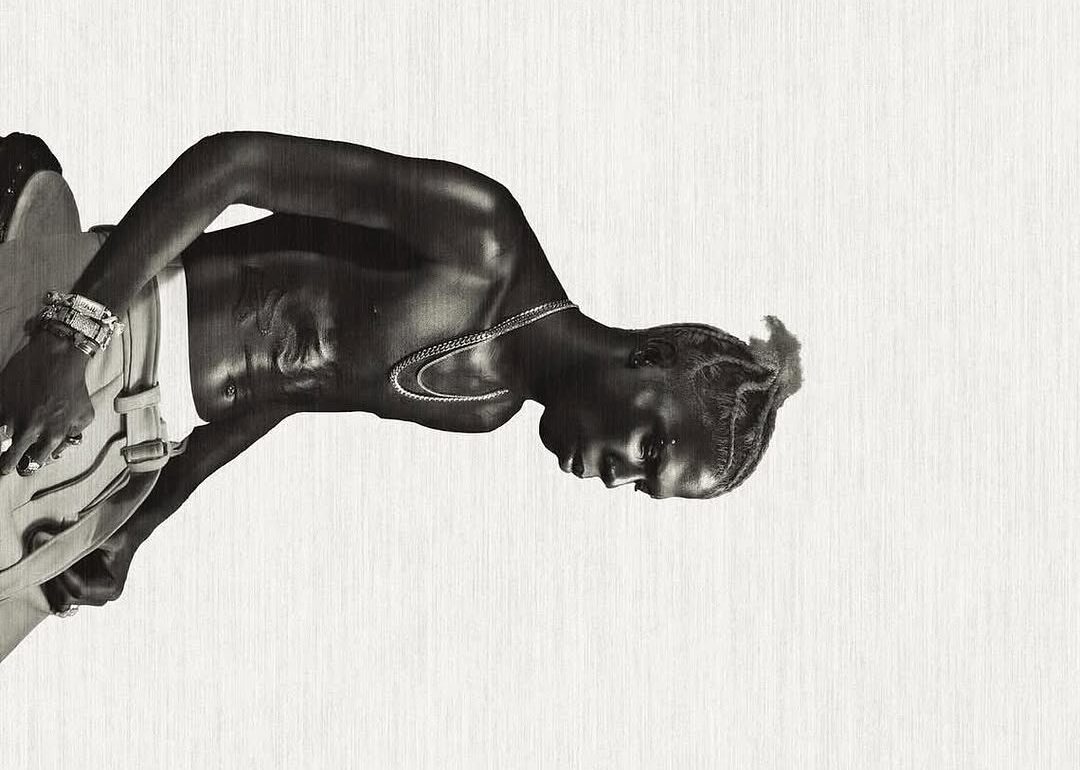If Children of Africa is a preview of what’s to come, then the game is still moving at Seyi Vibez’s pace.
By Abioye Damilare Samson
The Nigerian music industry moves at an exhausting pace. With new songs dropping every day, artistes are locked in an endless battle for attention, deploying elaborate rollout strategies, snippet teasers, and algorithm-friendly campaigns just to keep their names in circulation.
But Seyi Vibez’s latest offering, Children of Africa EP, arrives without the usual industry warm-up. No carefully timed rollout, no calculated anticipation—just four tracks, released with the assuredness of an artiste fully aware of his standing as one of the foremost voices in Street-Pop.
It’s an unorthodox and audacious move, but then again, Seyi Vibez has never played by convention, not in fashion, not in sound, and certainly not even in the way he delivers his verses.
For most of 2023, despite being one of the hottest names in Nigerian music, his music was often brushed aside with classist undertones, labelled as “razz”, while his most loyal listeners faced the same condescension. Even though it would be easy to dismiss those remarks as mere social media trolling, the consistency of the slander revealed a deeper bias. Still, none of that ever seemed to shake him; if anything, it fueled his relentless output.
The same year saw him release four projects—Memory Card, Vibez Till Thy Kingdom Come, Thy Kingdom Come, and NAHAMciaga—each one met with the kind of intensity that made it impossible to ignore his grip on the culture.
And if there was ever a lingering doubt about the weight of his influence and mass appeal, 2024 erased it completely, most evidently when “Different Pattern”, a song off NAHAMciaga EP, one of his 2023 releases, emerged as Nigeria’s most streamed song on Apple Music, and also ranked second on Spotify’s year-end tally, while he capped off his dominance by finishing 2024 as the most streamed Nigerian artiste on Audiomack.

Seven months after the release of his last album, Loseyi Professor—a title shaped by internet jokes about his introspective songwriting—and following the news of his fallout with longtime distributor Dapper, Seyi Vibez resurfaced with a four-track EP, Children of Africa that hints at his comeback which also marks his first official solo project under NSNV INC—the independent label he owns.
Unlike most of his past projects, where Dibs and TBM shaped the backbone of his sound, Children of Africa sees Seyi Vibez trade the familiar touch of longtime collaborator Dibs for a new sonic palette shaped by Semzi and Larrylanes.
On the semzi-produced intro, “Mario Kart”, the song opens with a nostalgic Nintendo-esque sound effect before the kick comes up. True to form, Seyi Vibez leans to his art of weaving familiar cultural references into his music.
The mantra-like repetition of “Everything lowo Olohun lowa” reinforces the spiritual undercurrent that grounds his music. The momentum builds as he launches into “Running running like Mario Kart”, using the frantic energy of the game as a metaphor for his relentless grind, heavily carried by Seyi Vibez’s signature raw delivery. Layered background vocals of his signee Muyeez lurk beneath the surface, which adds hypnotic texture to an already propulsive track.
There’s a lot of chest-thumping on “Macho”, the track that finds Seyi Vibez in full flex mode, staking his claim with unshakable confidence over a stripped-down yet insistent beat. The song also brings in American rapper NLE Choppa, whose verse does little to elevate the song beyond its already steady flow.

Mara Sound—the hyper-fast, adrenalised rhythm that has taken over TikTok with frenetic dance trends—found its way into Seyi Vibez’s sonic playbook. On “Shaolin”, he taps into the same high-octane energy that also fueled Rema’s “Ozeba”, but veers towards a more psychedelic take. Warped synths collide with spunky, percussive kicks, creating a rave-ready atmosphere.
Asides the chaotic rush of the sound of “Shaolin”, the song also thrives on cultural callbacks. The phrase “Everywhere good, everywhere pé ché ché ché ché ché” already carries the markings of a street lingo primed to embed itself into the pop-culture lexicon. It also serves as an unmissable homage to Wande Coal’s smooth hook on Mo’Hits’ 2007 “Booty Call”, where he crooned “Dudu yemi Wandecoal, I love that booty, I love that booty”.
For all the impression that Children of Africa carries as a title, nowhere does its childlike exuberance shine through as vividly as on the outro track, “Happy Song”. Seyi Vibez sidesteps his usual brooding reflections for something more free-spirited over a bright, choral backdrop provided by a children’s choir.
The song doesn’t bother with traditional verses or deep songwriting, just the repetitive chant of “H-A-P-P-Y, we are happy uh, happy people, we are happy”, like a nursery rhyme that feels oddly hypnotic.
Even without the familiar touch of longtime collaborators like Dibs and TBM, Children of Africa doesn’t lose any of the alchemy that makes Seyi Vibez’s music so magnetic. Instead, the shift to Larrylanes and Semzi injects a fresh dynamism into his sound, allowing for a more expansive sonic playground.

The creativity embedded in the production—the nostalgic Nintendo electronic sounds, and the nimble techno elements fused with the heavy kicks—converge into a textured experiment that elevates the project beyond the usual Street-Pop template.
For an artiste whose run has been defined by relentless output, seven months away feels like a lifetime for his core fans and listeners who expect a steady stream of music from him. But Children of Africa EP lands as a sharp, purposeful return, free of unnecessary filler and excess.
Seyi Vibez has always thrived on gut instinct, and here, he once again bends disparate influences to his will. Without the usual industry theatrics, he lets the music do the talking, preserving the rawness that made him a Street-Pop force while subtly expanding his sonic scope. If Children of Africa is a preview of what’s to come, then the game is still moving at his pace.
Lyricism – 1.0
Tracklisting – 1.5
Sound Engineering – 1.6
Vocalisation – 1.5
Listening Experience – 1.5
Rating – 7.1/10
Abioye Damilare is a music journalist and culture writer focused on the African entertainment Industry. Reading new publications and listening to music are two of his favourite pastimes when he is not writing. Connect with him on Twitter and IG: @Dreyschronicle



